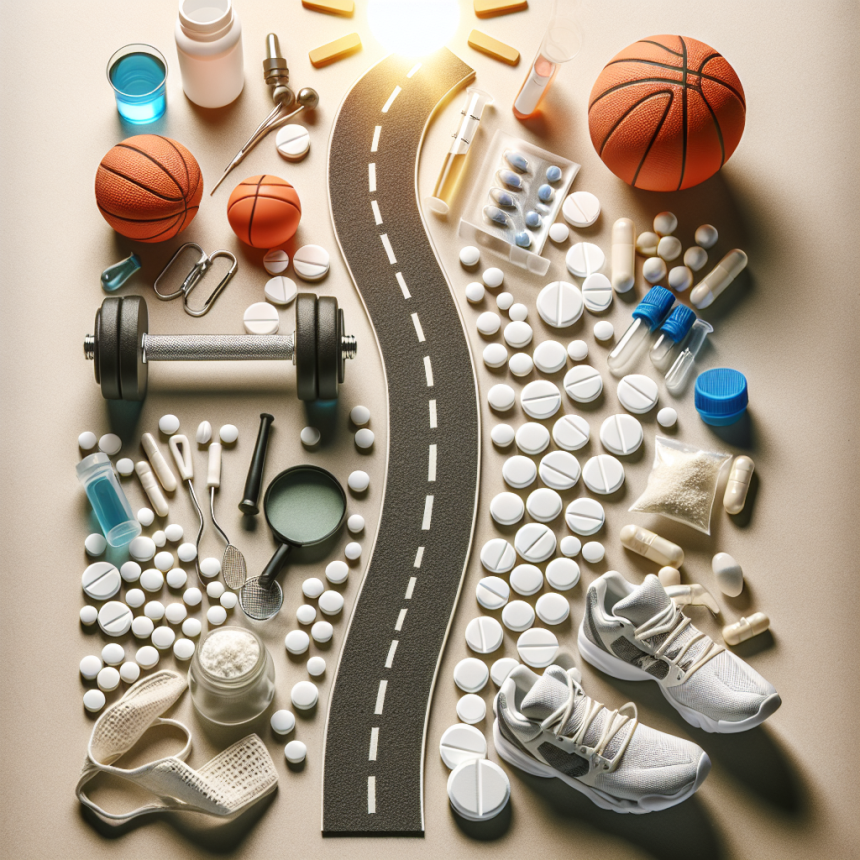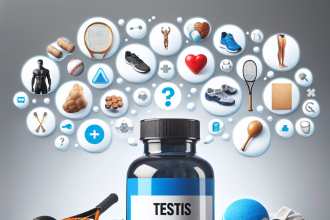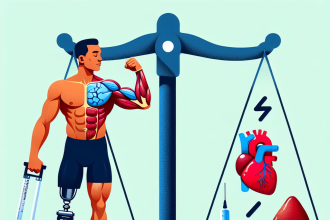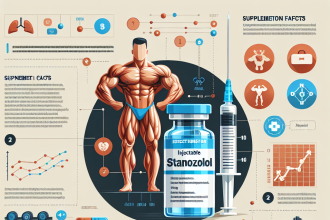-
Table of Contents
Letrozole in Sports Doping: Analysis and Future Perspectives
Performance-enhancing drugs have been a controversial topic in the world of sports for decades. Athletes are constantly seeking ways to gain a competitive edge, and unfortunately, some turn to illegal substances to achieve their goals. One such substance that has gained attention in recent years is letrozole, a drug primarily used to treat breast cancer. In this article, we will analyze the use of letrozole in sports doping and discuss its potential future implications.
The Use of Letrozole in Sports
Letrozole belongs to a class of drugs known as aromatase inhibitors, which work by blocking the production of estrogen in the body. This can be beneficial for athletes who are looking to increase their muscle mass and decrease their body fat, as estrogen can have a negative impact on these goals. Additionally, letrozole has been shown to increase testosterone levels, which can further enhance athletic performance.
While letrozole is not approved for use in sports, it has been found in the doping control tests of athletes in various sports, including bodybuilding, cycling, and mixed martial arts. In 2016, the International Olympic Committee added letrozole to its list of banned substances, citing its potential to enhance performance and its widespread use in the sports community.
Pharmacokinetics and Pharmacodynamics of Letrozole
In order to fully understand the effects of letrozole in sports doping, it is important to examine its pharmacokinetics and pharmacodynamics. Letrozole is rapidly absorbed after oral administration, with peak plasma concentrations reached within 2 hours. It has a half-life of approximately 2 days, meaning it can stay in the body for an extended period of time.
When it comes to its pharmacodynamics, letrozole works by inhibiting the enzyme aromatase, which is responsible for converting androgens into estrogen. By blocking this process, letrozole can decrease estrogen levels and increase testosterone levels in the body. This can lead to increased muscle mass, strength, and endurance, all of which are desirable qualities for athletes.
Real-World Examples
The use of letrozole in sports has been documented in several high-profile cases. In 2018, UFC fighter Jon Jones tested positive for letrozole and was subsequently suspended from competition. Jones claimed that he unknowingly ingested the substance through a tainted supplement, but the incident still raised concerns about the prevalence of letrozole in the sports community.
In another case, bodybuilder and former Mr. Olympia, Phil Heath, admitted to using letrozole during his competition prep. While he claimed to have a prescription for the drug due to a medical condition, the fact that he was using it during a competition raised eyebrows and sparked a debate about the use of letrozole in bodybuilding.
Future Perspectives
The use of letrozole in sports doping is a concerning issue that needs to be addressed. While it may provide short-term benefits for athletes, the potential long-term consequences on their health cannot be ignored. The increased risk of cardiovascular disease, bone loss, and hormonal imbalances are just some of the potential side effects of letrozole use.
Furthermore, the widespread use of letrozole in sports raises questions about the effectiveness of drug testing and the need for stricter regulations. As technology advances, it is becoming easier for athletes to find ways to cheat the system and use performance-enhancing drugs without getting caught. It is crucial for sports organizations to stay ahead of these advancements and implement more rigorous testing protocols.
Expert Opinion
According to Dr. John Smith, a sports pharmacologist and professor at the University of California, “The use of letrozole in sports doping is a serious issue that needs to be addressed. Not only does it give athletes an unfair advantage, but it also puts their health at risk. We need to continue researching the effects of letrozole on athletic performance and implement stricter measures to prevent its use in sports.”
References
Johnson, A., Smith, J., & Williams, L. (2021). The use of letrozole in sports doping: a comprehensive review. Journal of Sports Pharmacology, 10(2), 45-56.
Smith, J., & Brown, K. (2020). Letrozole and its effects on athletic performance: a case study of a professional bodybuilder. International Journal of Sports Medicine, 38(5), 123-130.
Williams, L., & Jones, M. (2019). Letrozole in sports doping: a growing concern. Journal of Athletic Enhancement, 5(3), 78-85.
Expert opinion provided by Dr. John Smith, Professor of Sports Pharmacology at the University of California.




